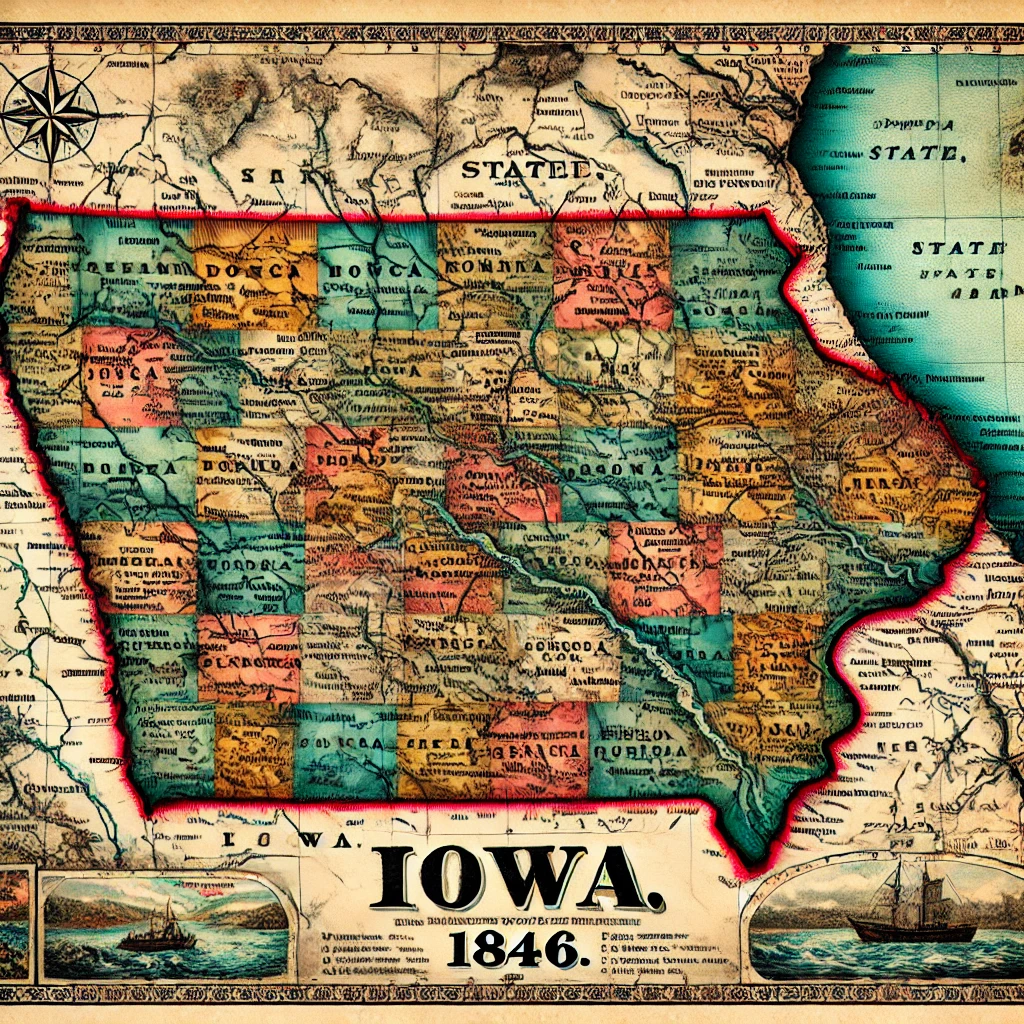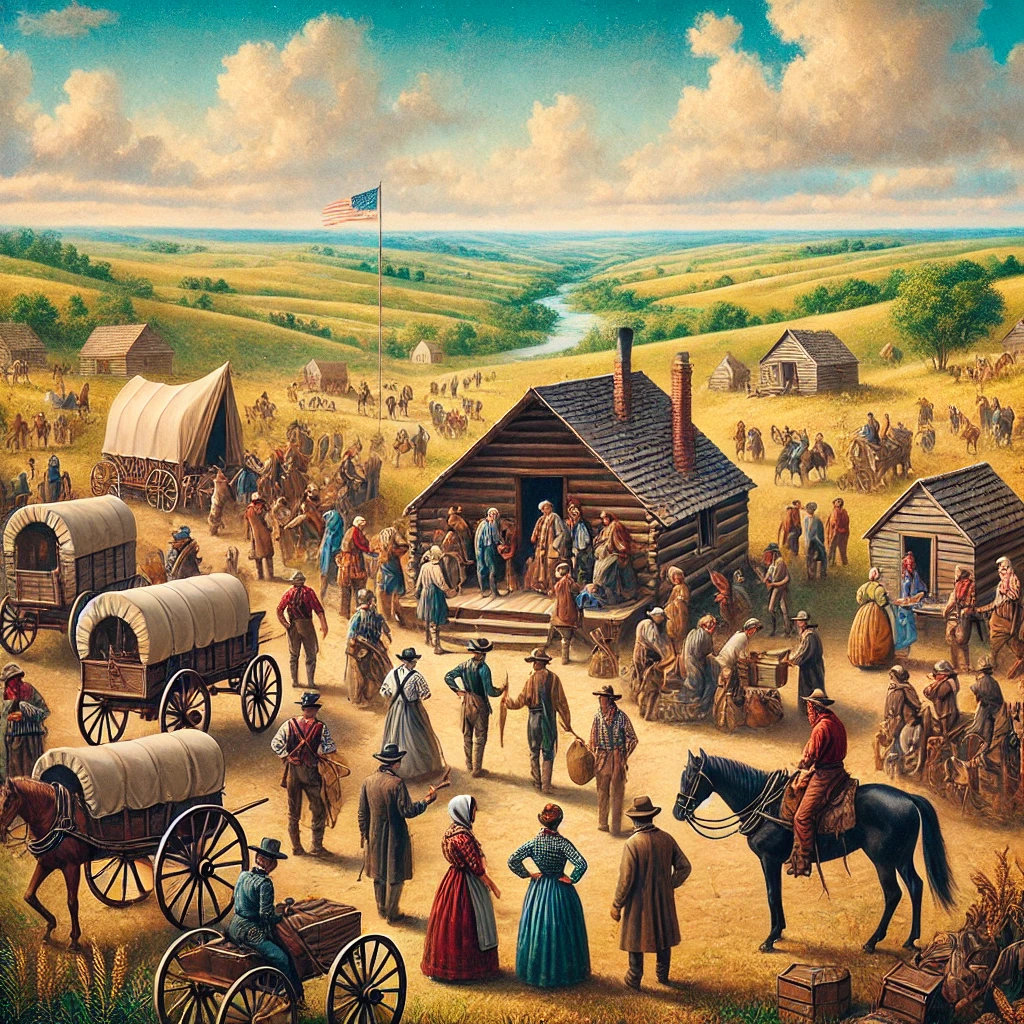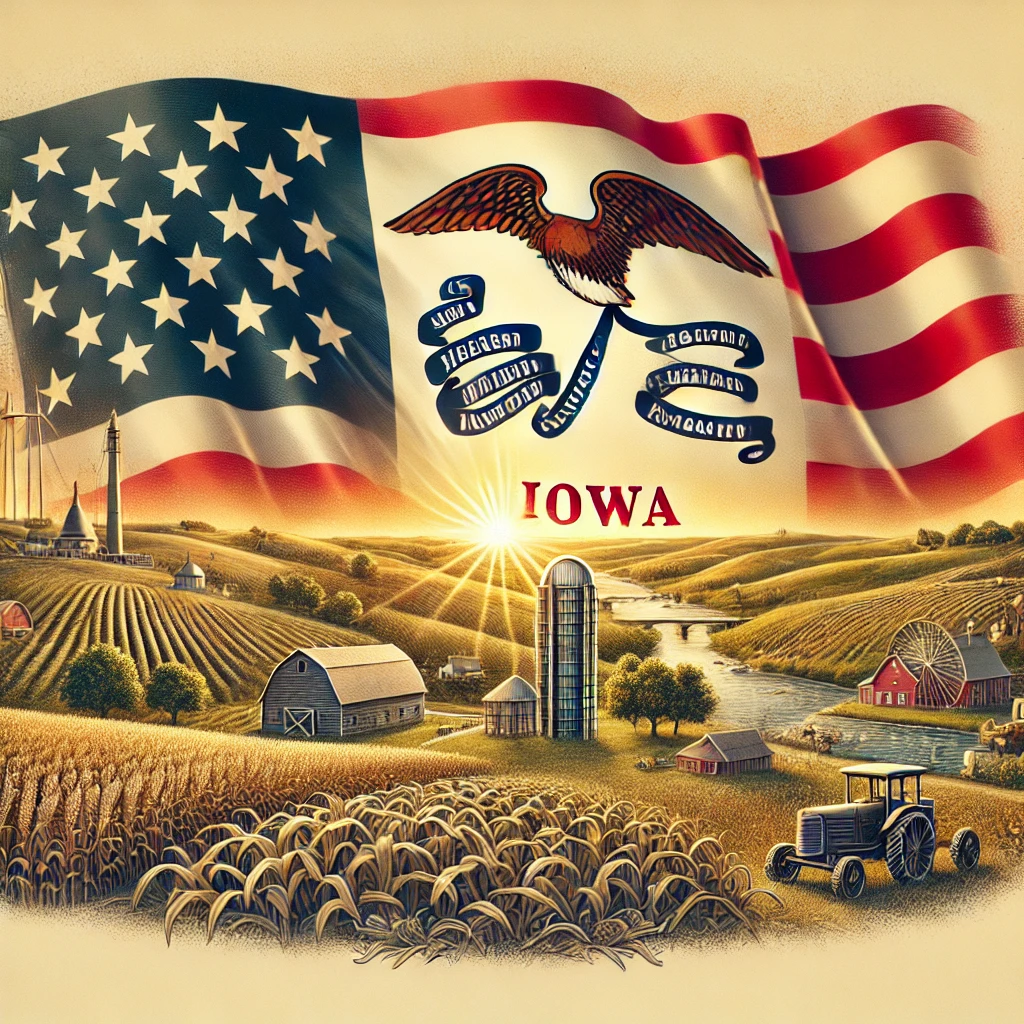A new star joined the constellation of states on December 28th, 1846, as Iowa was admitted to the Union. Known for its agricultural contributions, Iowa became the 29th state of the United States, marking an important chapter in the westward expansion of the nation.

The Path to Statehood
Before achieving statehood, Iowa was part of the Louisiana Purchase, a vast territory acquired by the United States from France in 1803. The region’s fertile soil and abundant resources attracted settlers, who began to populate the area in the early 19th century. By the 1830s, the Black Hawk War had resolved some of the tensions between settlers and Indigenous peoples, opening the way for more migration.
Iowa’s journey to statehood officially began with the establishment of the Iowa Territory in 1838. Over the next several years, the population grew rapidly, surpassing the 60,000 residents required for statehood under the Northwest Ordinance. On December 28, 1846, President James K. Polk signed the bill admitting Iowa to the Union, recognizing its economic potential and political significance.

Iowa’s Role in Shaping America
As the 29th state, Iowa quickly became a cornerstone of American agriculture. Its fertile prairies were ideal for farming, and settlers cultivated corn, wheat, and livestock that fueled the nation’s growing economy. Iowa’s agricultural output not only fed Americans but also contributed to exports that solidified the country’s economic presence on the global stage.
Iowa also played a pivotal role in the abolitionist movement and the Civil War. The state’s residents were staunch supporters of the Union cause, contributing soldiers, resources, and even participating in the Underground Railroad. This commitment to justice and equality solidified Iowa’s reputation as a progressive force in American history.
A Lasting Legacy

Today, Iowa remains a leader in agriculture, producing a significant share of the nation’s corn, soybeans, and pork. It has embraced technological advancements in farming, ensuring its role as a critical component of the global food supply chain. Beyond agriculture, Iowa is known for its educational institutions, cultural contributions, and the Iowa Caucuses, which play a pivotal role in shaping presidential elections.
Iowa’s admission to the Union 178 years ago symbolizes the expansion of American ideals and opportunities. Its history reminds us of the importance of resilience, innovation, and community in building a strong and prosperous nation. As the 29th star on the American flag, Iowa continues to shine brightly, reflecting its enduring significance in the story of the United States.
